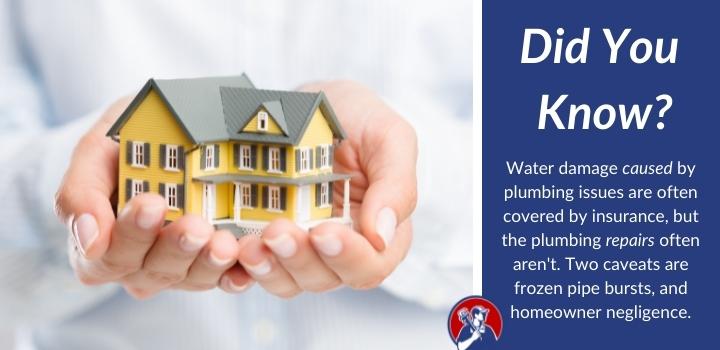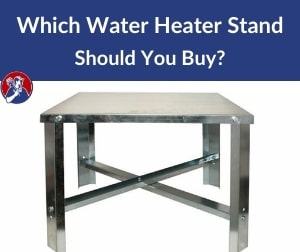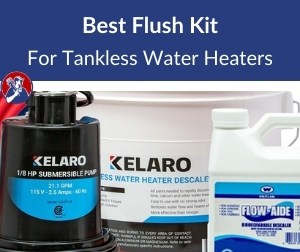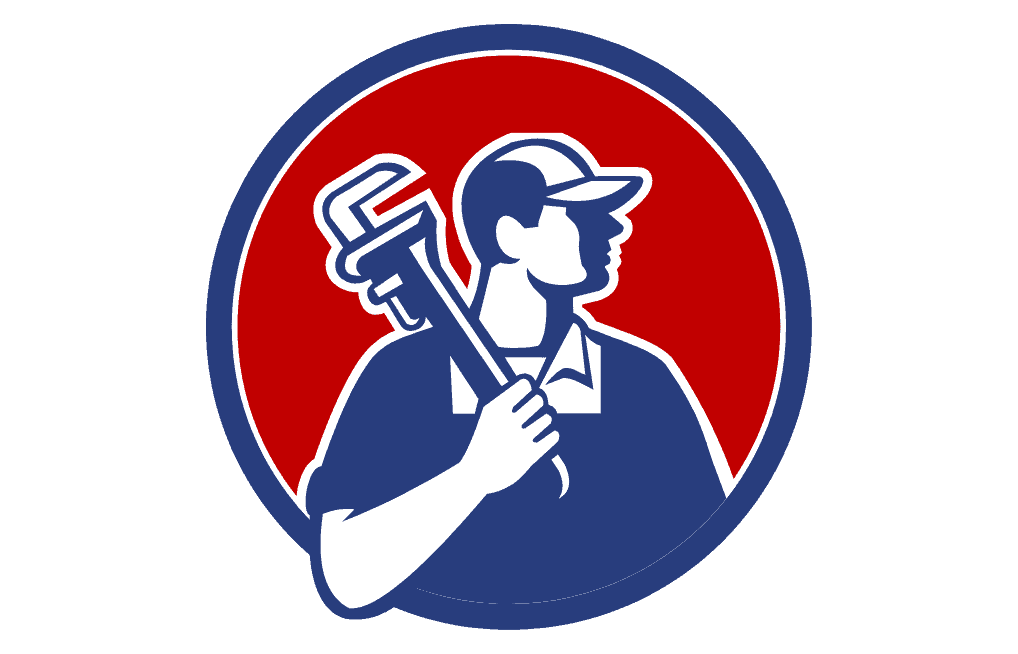
Did you run into an expensive plumbing issue and need to know if your insurance will help you cover the costs? Everyone is required to get homeowner’s insurance when they buy a home in order to receive a mortgage. And the majority of homeowners keep it even when their home is paid off.
The policy covers damage to your home, but does that include plumbing expenses? We answer your questions about what type of plumbing work your insurance company covers and how to put yourself in the best position possible when you need to file a claim.
In this PlumbingNav guide, we will cover:
- Does homeowners insurance cover plumbing?
- Understanding your home insurance policy
- Is plumbing covered by insurance? Specific plumbing issues
- Filing a plumbing claim with your insurance company
| What's In This Guide? | |
|---|---|
|
|
|
Does Homeowners Insurance Cover Plumbing?
In most cases, homeowners insurance will cover the water damage caused by a plumbing problem but not the replacement of the plumbing itself, such as the pipes or the water heater.
A key factor to keep in mind is this…
Do you have water damage that is “sudden or accidental,” as a result a plumbing failure? In many cases, this will be covered. However, unresolved maintenance, pipe deterioration, and wear and tear will not be covered.
Of course, there are a lot of variables that go into the final decision, including the cause of the damage, plumbing materials, your maintenance routine, geographical location, the location and extent of the damage, and your insurance policy. To say that insurance covers plumbing isn’t a simple “yes” or “no” answer.
Locations with high moisture levels, such as Florida, may have specialized rules regarding what they will cover due to the unique conditions related to the humidity.
Keep in mind that your policy won’t cover the damage if it’s caused by negligence on your part. If the plumbing repair was avoidable, the policy won’t cover it under 99% of the circumstances.
Examples of negligence include pouring excessive oil and grease down your drain pipe or ignoring tree roots near your pipes. Ignoring plumbing issues until they become worse may also be considered negligence.
Let’s talk about insurance coverage for some specific plumbing issues.
Is Plumbing Covered by Home Insurance? Whether Specific Plumbing Repairs are Covered
Does Home Insurance Cover Plumbing Repairs and Leaks in General?
Your home insurance will not cover preventable leaks, such as using excessive amounts of powerful chemical or caustic drain cleaners or allowing a clog to get so bad that pressure buildup breaks the pipe.
Policies vary on whether they will cover a water leak caused by a broken pipe damaged by corrosion. Most policies won’t cover materials that corrode easily, such as cast iron. However, if you kept up on maintenance, the policy may cover the water damage.
Does Homeowners Insurance Cover Pipe Replacement?
In most cases, your insurance will not cover the cost of pipe replacement.
The exception occurs if you experience a burst frozen pipe from cold weather. Some policies might include details regarding if the pipes were properly heated, but others will be more forgiving and inclusive.
If you do need pipe replacement, you can also talk to the city to learn about any programs available to you. The city may assume responsibility if the repair involves the city’s sewer line.
Does Homeowners Insurance Cover Your Septic System?
Your septic system is covered as part of your other structures’ insurance.
Generally, your other structures will have insurance coverage for 10% of what your home is insured for. For example, if your home is insured for $250,000, the policy will cover your septic system for up to $25,000.
A special note is on sewer backups. You can often add a “rider” for coverage of potential sewer line backups. This goes for both septic tank systems as well as homes that are connected to the city line. Ask your carrier about this, as it’s often inexpensive to do so at around $50/yr for $5,000 in coverage. Here is some additional info.
Does Homeowners Insurance Cover Water Damage From Leaking Plumbing?
Yes.
Your homeowner’s insurance will often cover the water damage caused by leaking plumbing. The repair of small leaks will not be covered, but the damage from such occurrences often will be covered.

Covering Water Damage From Frozen Pipe Bursts:
The most common water damage covered by leaking plumbing pipes are due to pipe freezes during cold snaps. You can prevent outside water pipes from freezing and bursting, but sometimes indoor problems are unavoidable due to heat and power loss.
Of course, making this plumbing claim can be expensive. Your premium will go up after the fact, so only file an insurance claim if it’s worth it. (Most pipe freeze bursts are!)
For regular leaks, repair your plumbing before getting water damage. It will be cheaper than waiting for a large claim through your insurance. If the damage occurs again when you knew a plumbing problem exists, you may not have the damage covered due to negligence.
Does Homeowners Insurance Cover a Slab Leak?
A slab leak occurs when a pipe underneath your concrete slab foundation leaks. A slab plumbing leak can cause serious structural damage to your home, and repairs can get expensive since it’s difficult to access the pipes underneath the concrete slab.
Unfortunately, slab leaks that occur due to a lack of maintenance will not be covered. Your insurance company will only cover the damage if it’s caused by one of the perils covered under your policy.
Watch this Video Regarding Slab Leak Insurance Coverage:
Filing A Claim With Your Insurance Company to Cover Plumbing Repairs
After a plumbing incident, you will want to jump into action right away.
If you have a burst pipe or a leak, turn off the water to avoid further damage. Clean up as much water as you can right away and open windows to provide ventilation. Take pictures of the damage before you clean.
File a claim with your insurance company as soon as you finish tending to the emergency.
The insurance company will send an adjuster out to access the damage and determine what they will and will not cover.
Here is a detailed video of how to file a water damage insurance claim related to plumbing:
If you disagree with the adjustor’s assessment, you will need to appeal the decision and provide proof of why you feel the damage should be covered by the policy.
You can always hire a third-party adjustor to provide a second opinion if you fear the adjuster from the insurance company didn’t provide a fair report (they do work for the insurance company after all). Of course, you will be required to pay for the third-party adjustor.
When the insurance does approve certain repairs, you will pay the deductible on the policy. The insurance company will then ask for quotes for the cost of the covered repairs. In some cases, you must go through approved plumbing companies or submit multiple quotes. The insurance company will send you a check for the cost of the repairs.
Understanding Your Home Insurance Policy Basics
Now that we’ve answered these common questions related to incidents related to plumbing on your policy, let’s discuss the basics of your policy in general.
You pay your home insurance company every year to protect you financially in case you experience an expensive, unexpected home repair (in accordance with your insurance agreement). However, some people have never had to use it. Here is how it works.
You have to make a choice about how much coverage you want, what types of coverage you want, and your deductible. Your premium is based on the amount of coverage, the policy details, the current condition of your home, and the perceived risk.
If you fail to make your premium payments beyond the grace period, your policy will be canceled.
The deductible refers to the amount you pay when you need a repair (you didn’t think you wouldn’t have to pay anything, did you?).
If the damage costs $10,000 to repair and you have a $1000 deductible, you will pay the $1000 deductible, and the insurance company will pay the remaining $9000.
Some people opt for high deductibles in exchange for lower monthly premiums. If you have a $2500 deductible, you will pay the $2500, and the insurance company will pay the remaining $7500.
If you increase the value of your home over time with renovations or additions, you may need to upgrade your coverage. Talk to your insurance adjustor to learn if you have enough coverage on your home. Here is a video explaining how companies actually work.
Homeowner’s insurance generally covers water damage repairs caused by a plumbing incident if the damage happens suddenly and unexpectedly. Sudden plumbing damage may result from the following perils (events)*:
- Lightning or fire
- Hail or windstorm
- Damage caused by aircraft
- Explosions
- Riots or civil disturbances
- Smoke damage
- Damage caused by vehicles
- Theft
- Vandalism
- Falling objects
- Volcanic eruption
- Damage from the weight of snow, ice, or sleet
- Water damage from plumbing, heating, or air conditioning overflow
- Water heater cracking, tearing, and burning
- Damage from electrical current
- Frozen pipe
*Ask your insurance company or adjuster to confirm coverage, and read your policy to learn exactly which perils are covered under your homeowner’s insurance policy, as individual policies vary greatly. Don’t assume everything above is covered under your policy.
Types of Insurance Coverage
Whether or not plumbing is covered by your home insurance sometimes depends on what type of coverage you have. You want to get the right policy for you from the very beginning by:
- Dwelling coverage – coverage that covers damage to your actual dwelling, including the floors and walls.
- Other structure coverage – coverage that covers garages, sheds, and other structures on your property. If built later, confirm if the plumbing is covered if applicable.
- Personal property coverage – coverage that covers your personal property, such as your computer, in the case of water damage.
- Loss of use coverage – coverage that pays for the cost of your hotel if you can’t stay during your home during covered repairs.
- Flood insurance – flood insurance covers your home in the case of a flood and usually costs extra. Flood insurance does not cover damage caused by a plumbing flood – only natural occurrences. If you live in an area prone to flood damage, ask about the national flood insurance program.
Don’t get stuck with avoidable main line drain problems bills due to tree root intrusion. Read our review of the best tree root killer for sewer lines to prevent a problem before it happens!
Prevent Plumbing Insurance Claims
Prevent water damage before it happens and protect yourself financially by getting professional plumbing inspections every few years, and being careful about what you dispose of down the drain. Don’t forget that you can do proactive enzymatic drain cleaning as part of your annual plumbing maintenance routine, especially if you have older pipes.
It doesn’t hurt to learn how to handle the maintenance and repairs yourself. You can perform your own drain cleaning by purchasing an electric drain snake or having some Green Gobbler on hand for basic clogs. You can also watch the video below to learn how to repair some of the most common plumbing problems yourself.
Getting the Right Home Insurance Policy
Some tips on getting the right homeowners policy for you include:
- Complete an inspection of your home
- Get quotes from multiple insurance companies
- Emphasize value over price
- Opt for a reputable company
- Avoid gaps in coverage
- Bundle car insurance, life insurance, and home insurance
- Inquire about specific plumbing insurance for homeowners in addition to your standard homeowner’s insurance
- Ask about discounts
- Verify what items are not covered under the policy and common reasons claims get denied
Need help staying organized? Buy this Home Inventory Record Book from Amazon!
Final Thoughts on Plumbing Insurance for Homeowners
Homeowner’s insurance coverage and commercial property insurance generally cover repairs of water damage but not the plumbing itself as long as the plumbing didn’t fail due to your negligence.
Of course, there are a lot of variables and moving parts at play. Do you want to learn more? Read your insurance policy in detail and ask questions in advance. Additionally, you can visit the insurance information institute to get all of your questions answered.
Get Fast, Local Plumbing Service
Connect with an expert plumber in your local area to tackle any job – big or small. Find help with leaks, clogs, or full installations.
Select your service category on the form, provide your details, and an expert plumber will be in touch!
Plumbing Navigator is an informational site that connects visitors with local plumbers but does not directly provide plumbing services or operate as a licensed company.
Plumbing Insurance FAQs
Is plumbing part of dwelling coverage?
The actual plumbing system is not a part of your dwelling coverage, but your dwelling coverage will cover water damage caused by a plumbing issue, such as water-damaged walls and floors.
What is usually not covered by homeowners insurance?
Unfortunately, your insurance policy probably won’t cover the replacement of any pipes. Talk to the city to see if they offer any programs that may help you with your sewer line replacement or old water lines. Some programs and grants exist.
Are corroded pipes covered by insurance?
Corroded pipes are generally not covered by insurance, especially if they consist of old pipe materials such as cast iron or other material that corrodes quickly. Leaks from corroded pipes are only covered in certain sudden and unexpected situations not caused by your negligence.
Are hot water tanks covered by insurance?
Your hot water heater is generally not covered by your insurance when they need repairs. However, water damage caused by a leaking water heater may be covered. Your water heater may also be covered if it malfunctioned unexpectedly, causing a larger problem. Some are located on a second floor, so a water leak that causes damage to your dwelling is likely covered. (Check policy details.) It’s always a good idea to replace a failing water heater before it’s time.
Meet Your Plumbing Navigator

About Plumbing Navigator
We’re passionate about all things plumbing, and love sharing tips, “how-to”, and reviewing the latest products to help make your project a success!
Learn More Plumbing Tips
Want to tackle more plumbing projects? Check out these helpful guides!






